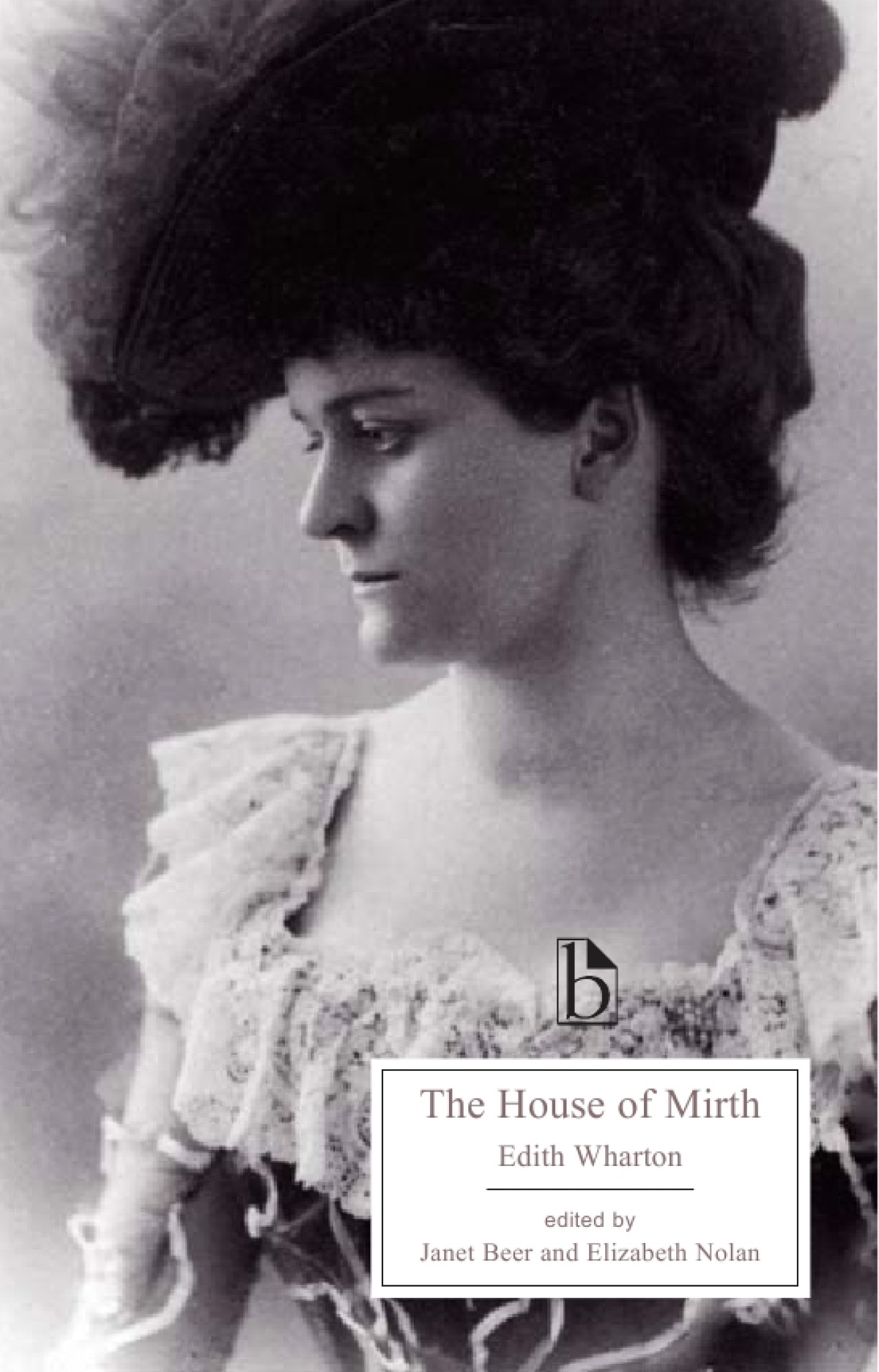Table Of Content

She is prepared for two things in life, to be a rich man's wife or to do piecework at poverty wages. One of Edith Wharton’s most accomplished social satires, this novel tells the story of the beautiful but impoverished New York socialite Lily Bart, whose refusal to compromise in her search for a husband leads to her exclusion from polite society. In charting the course of Lily’s life and downfall, Wharton also provides a wider picture of a society in transition, a milieu in which old certainties, manners, and morals no longer hold true, and where the individual has become an expendable commodity. Because my attachment to the book is so personal, I tend to reread it with slight trepidation that the magic may have fled. After all, the world and I have both changed quite a bit since I was a teenager. All of which moves me to assert that Edith Wharton’s second novel is a masterpiece that remains electrifying and relevant in our 21st century.
Edith Wharton
She was smaller and thinner than Lily Bart, with a restless pliability ofpose, as if she could have been crumpled up and run through a ring, likethe sinuous draperies she affected. Her small pale face seemed the meresetting of a pair of dark exaggerated eyes, of which the visionary gazecontrasted curiously with her self-assertive tone and gestures; so that,as one of her friends observed, she was like a disembodied spirit whotook up a great deal of room. She returned a sympathetic enquiry, and gradually he was drawn on to talkof his latest purchases. It was the one subject which enabled him toforget himself, or allowed him, rather, to remember himself withoutconstraint, because he was at home in it, and could assert a superioritythat there were few to dispute. Hardly any of his acquaintances cared forAmericana, or knew anything about them; and the consciousness of thisignorance threw Mr. Gryce’s knowledge into agreeable relief.
Latest blog posts
Finery laid off is as unappetizing as the remains of a feast, andit occurred to Lily that, at home, her maid’s vigilance had always sparedher the sight of such incongruities. Her body ached with fatigue, andwith the constriction of her attitude in Gerty’s bed. All through hertroubled sleep she had been conscious of having no space to toss in, andthe long effort to remain motionless made her feel as if she had spenther night in a train. I’ll watch here by the fire,and you’ll leave the light, and your door open.
Setting
Trenor and Miss Bart prolonged their drive till long after sunset; andbefore it was over he had tried, with some show of success, to prove toher that, if she would only trust him, he could make a handsome sum ofmoney for her without endangering the small amount she possessed. She understood onlythat her modest investments were to be mysteriously multiplied withoutrisk to herself; and the assurance that this miracle would take placewithin a short time, that there would be no tedious interval for suspenseand reaction, relieved her of her lingering scruples. But now the hint of thisweakness had become the most interesting thing about her.
‘Uncle Vanya’ Review: Steve Carell Fits Seamlessly Into a Stellar Ensemble in a Gorgeous Broadway Revival
The collective nature of her interests exempted her from theordinary rivalries of her sex, and she knew no more personal emotion thanthat of hatred for the woman who presumed to give bigger dinners or havemore amusing house-parties than herself. Trenor’s bank-account, almost always assured her ultimate triumph insuch competitions, success had developed in her an unscrupulous goodnature toward the rest of her sex, and in Miss Bart’s utilitarianclassification of her friends, Mrs. Trenor ranked as the woman who wasleast likely to “go back” on her. Why could one never do a natural thingwithout having to screen it behind a structure of artifice? She hadyielded to a passing impulse in going to Lawrence Selden’s rooms, and itwas so seldom that she could allow herself the luxury of an impulse! Thisone, at any rate, was going to cost her rather more than she couldafford. She was vexed to see that, in spite of so many years ofvigilance, she had blundered twice within five minutes.
Some Critics Don’t Understand the ‘Cabaret’ Broadway Revival. Young Women Do. (Guest Column)
It was Rosedale, fur-coated, glossy andprosperous—but why did she seem to see him so far off, and as if througha mist of splintered crystals? Before she could account for thephenomenon she found herself shaking hands with him. They had parted withscorn on her side and anger upon his; but all trace of these emotionsseemed to vanish as their hands met, and she was only aware of a confusedwish that she might continue to hold fast to him. The dread lest he should question her, or keep the bottle back, chokedthe murmur of acquiescence in her throat; and when at length she emergedsafely from the shop she was almost dizzy with the intensity of herrelief.
Terence Davies, the acclaimed English filmmaker who directed The Deep Blue Sea and The House Of Mirth, dies at - Daily Mail
Terence Davies, the acclaimed English filmmaker who directed The Deep Blue Sea and The House Of Mirth, dies at.
Posted: Sat, 07 Oct 2023 07:00:00 GMT [source]
The House of Mirth review – Gillian Anderson is Oscar-worthy in a brilliant adaptation - The Guardian
The House of Mirth review – Gillian Anderson is Oscar-worthy in a brilliant adaptation.
Posted: Fri, 13 Oct 2000 07:00:00 GMT [source]
About this time she was farther cheered by an invitation to spend theThanksgiving week at a camp in the Adirondacks. The invitation was onewhich, a year earlier, would have provoked a less ready response, for theparty, though organized by Mrs. Fisher, was ostensibly given by a lady ofobscure origin and indomitable social ambitions, whose acquaintance Lilyhad hitherto avoided. Fisher’s view, that it didn’t matter who gave the party, as long asthings were well done; and doing things well (under competent direction)was Mrs. Wellington Bry’s strong point. Everything, accordingly, was well done, forthere was no limit to Mrs. Fisher’s prodigality when she was not spendingher own money, and as she remarked to her pupil, a good cook was the bestintroduction to society. If the company was not as select as the CUISINE,the Welly Brys at least had the satisfaction of figuring for the firsttime in the society columns in company with one or two noticeable names;and foremost among these was of course Miss Bart’s. The young lady wastreated by her hosts with corresponding deference; and she was in themood when such attentions are acceptable, whatever their source.
About Edith Wharton
Therehad been a third at the feast she had spread for him, and that third hadtaken her own place. She tried to follow what he was saying, to cling toher own part in the talk—but it was all as meaningless as the boom ofwaves in a drowning head, and she felt, as the drowning may feel, that tosink would be nothing beside the pain of struggling to keep up. She was dining with Mrs. Fisher, who had gathered at an informal feast afew of the performers of the previous evening.

The room was full of women and girls, all too much engaged in the rapidabsorption of tea and pie to remark her entrance. A hum of shrill voicesreverberated against the low ceiling, leaving Lily shut out in a littlecircle of silence. She hadlost the sense of time, and it seemed to her as though she had not spokento any one for days. Her eyes sought the faces about her, craving aresponsive glance, some sign of an intuition of her trouble. But thesallow preoccupied women, with their bags and note-books and rolls ofmusic, were all engrossed in their own affairs, and even those who sat bythemselves were busy running over proof-sheets or devouring magazinesbetween their hurried gulps of tea. This decision at last brought him to his feet, and carried him back tothe gambling rooms, within whose doors he had seen her disappearing; buta prolonged exploration of the crowd failed to put him on her traces.
Shewas a woman who remembered dates with intensity, and could tell at amoment’s notice whether the drawing-room curtains had been renewed beforeor after Mr. Peniston’s last illness. Mrs. Peniston was one of the episodical persons who form the padding oflife. It was impossible to believe that she had herself ever been a focusof activities. The most vivid thing about her was the fact that hergrandmother had been a Van Alstyne. This connection with the well-fed andindustrious stock of early New York revealed itself in the glacialneatness of Mrs. Peniston’s drawing-room and in the excellence of hercuisine. She belonged to the class of old New Yorkers who have alwayslived well, dressed expensively, and done little else; and to theseinherited obligations Mrs. Peniston faithfully conformed.
She too needed friends—she had tasted the pang of loneliness;and her resentment of Bertha Dorset’s cruelty softened her heart to thepoor wretch who was after all the chief of Bertha’s victims. In a flash she remembered Mrs. Trenor’s complaints of Carry Fisher’srapacity, and saw that they denoted an unexpected acquaintance with herhusband’s private affairs. If she was careless of his affections she was plainly jealous ofhis pocket; and in that fact Lily read the explanation of her rebuff. Theimmediate result of these conclusions was the passionate resolve to payback her debt to Trenor. That obligation discharged, she would have but athousand dollars of Mrs. Peniston’s legacy left, and nothing to live onbut her own small income, which was considerably less than Gerty Farish’swretched pittance; but this consideration gave way to the imperativeclaim of her wounded pride. She must be quits with the Trenors first;after that she would take thought for the future.

But Monte Carlo is,of all places, the one where the human bond is least close, and oddsights are the least arresting. If a glance or two lingered on thecouple, no intrusive sympathy disturbed them; and it was Lily herself whobroke the silence by rising from her seat. With the clearing of hervision the sweep of peril had extended, and she saw that the post ofdanger was no longer at Dorset’s side. He received this with a laugh like the whirring sound in a disabledclock. Her two months on the Sabrina had been especially calculated to aid thisillusion of distance. She had been plunged into new scenes, and had foundin them a renewal of old hopes and ambitions.
Reading his dismissal in her eyes, he held out his hand with a gesturewhich conveyed something of this inarticulate conflict. “I don’t know whyI should regard myself as an exception——” she began. Lily sat down on one of the plush and rosewood sofas, and he depositedhimself in a rocking-chair draped with a starched antimacassar whichscraped unpleasantly against the pink fold of skin above his collar. In the peacock-blue parlour, with its bunches of dried pampas grass, anddiscoloured steel engravings of sentimental episodes, he looked about himwith unconcealed disgust, laying his hat distrustfully on the dustyconsole adorned with a Rogers statuette. The onlyhope of renewal lay in the little bottle at her bed-side; and how muchlonger that hope would last she dared not conjecture. She smiled, recognizing the heroism of the offer to the point of beingfrankly touched by it.
When Lawrence is not looking, she throws the letters in his lit fireplace. Lily goes home and finds her inheritance has at last been delivered. She puts the check in an envelope she addresses to her bank, and writes another for Gus Trenor, resolving her massive debt, and then takes a fatal dose of the laudanum, drifting off to oblivion in her darkened room. Finding the partially-burnt letters in his fireplace and sensing her intentions, Selden rushes to her boarding room.
She spoke with the noble directness which she could command on suchoccasions, and which was like a large steady light thrown across thetortuous darkness of the situation. In its inconvenient brightnessRosedale seemed to waver a moment, as though conscious that every avenueof escape was unpleasantly illuminated. She paused a moment, moved in spite of herself by this reminder of herinfluence over him.










